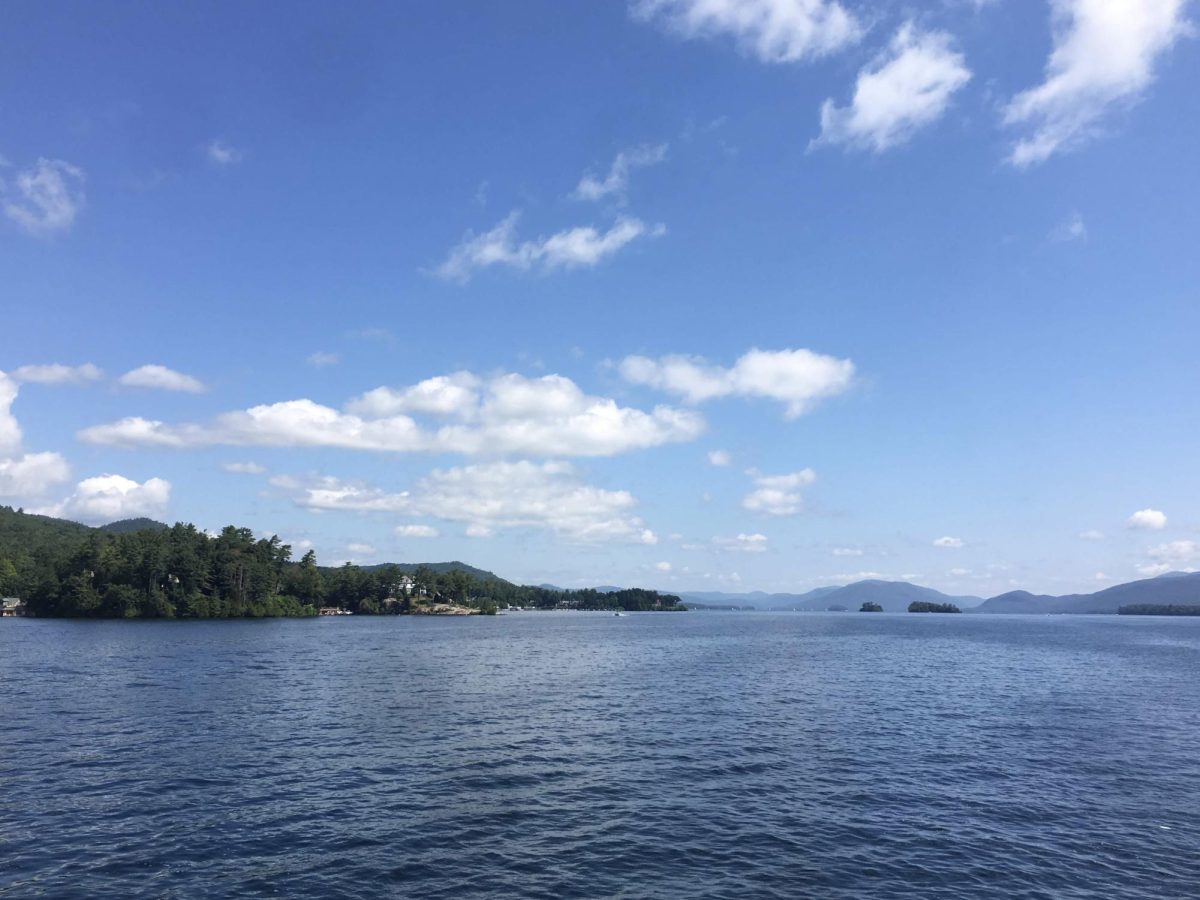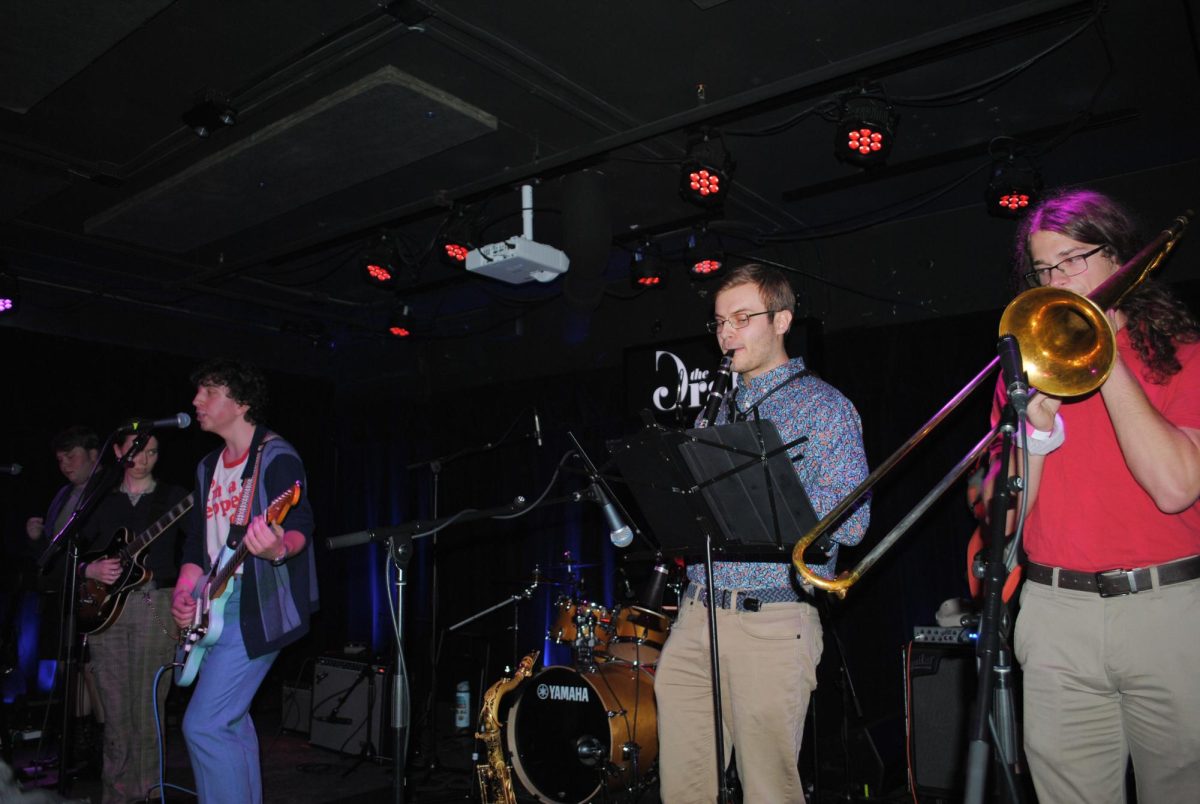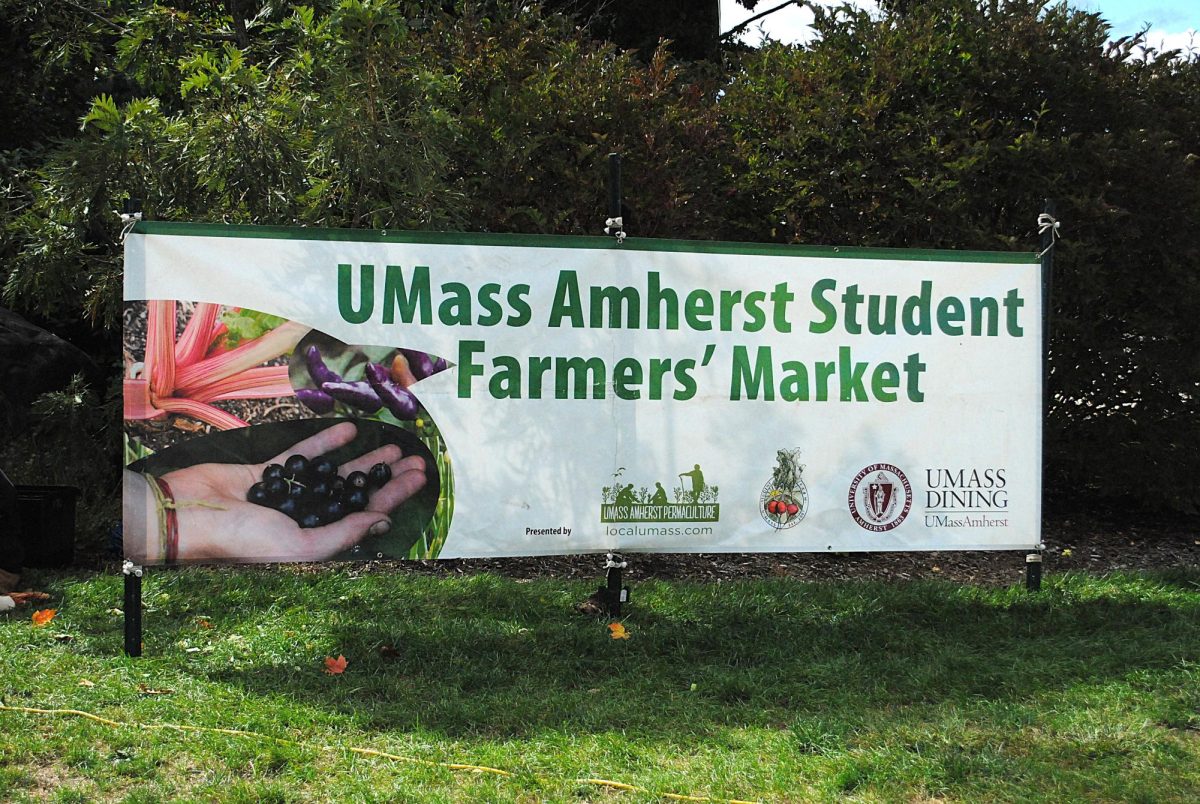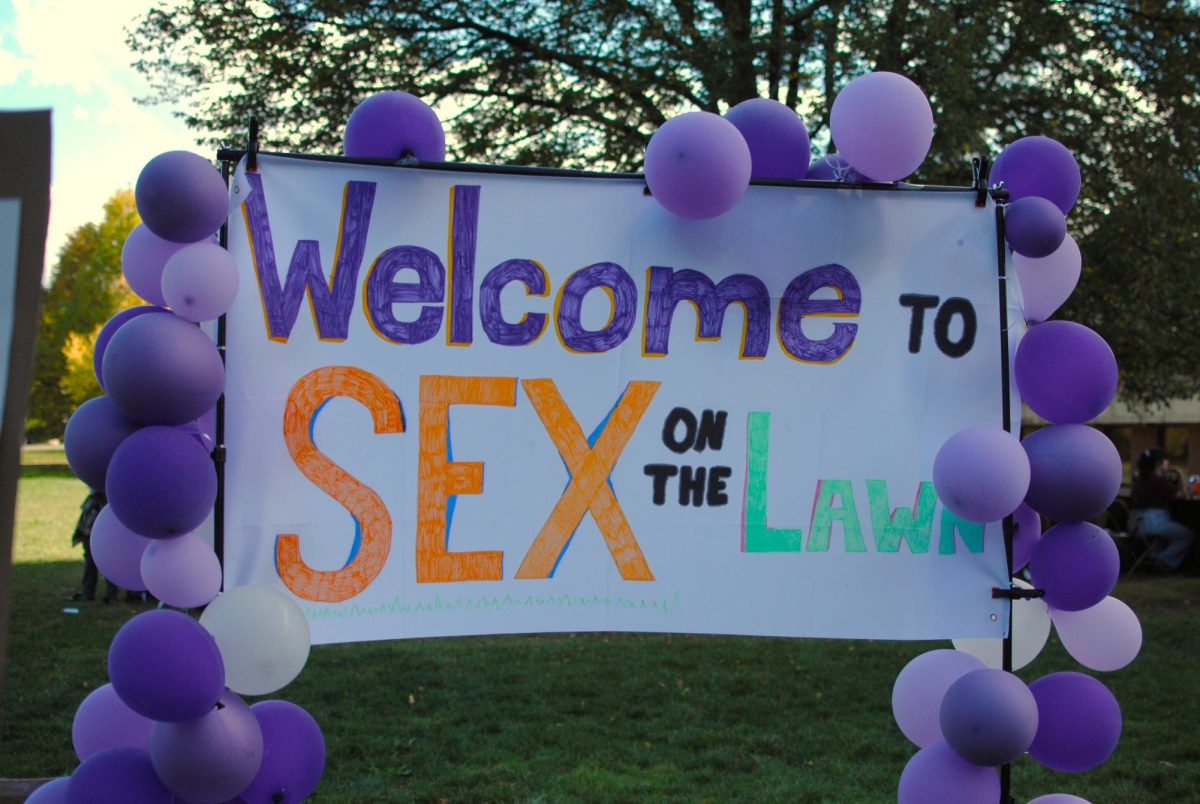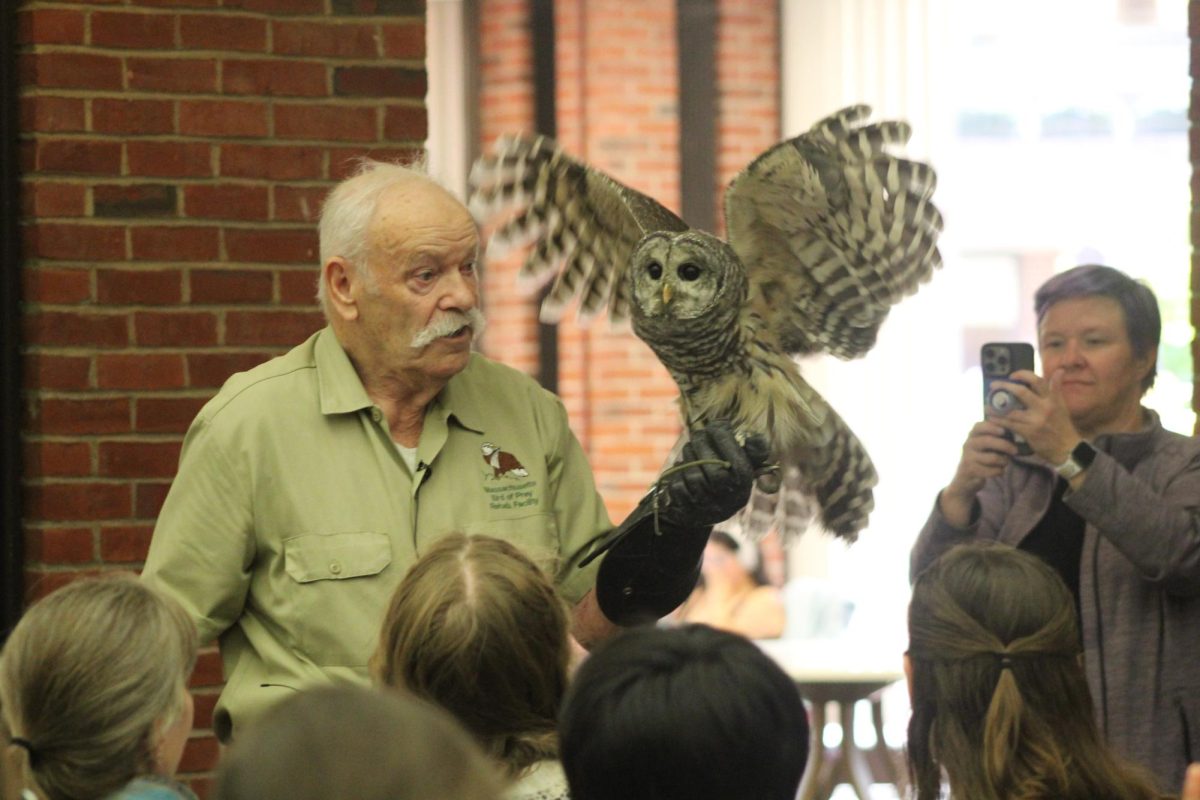This post is a cross-post from The Journalism Launchpad blog, published by Journalism Dept. Internship Coordinator BJ Roche.
Tips for Choosing a Gen-Ed
This post is written by journalism majors who are doing internships, as part of the Integrative Experience Internship program. Students were asked to provide advice to their fellow journalism students with the gen-eds that worked best for them.
Please take a look before you choose your gen eds. And post your questions and comments, of course.
On the beat
by Emma Sandler ’15
Something I have come across this past year is the importance of a “beat.” For the uninitiated, it’s any journalist’s particular area of interest that he or she writes about. I have struggled with for some time to establish my own beat, mostly because I was concerned about confining myself to one topic when I know I can write about several.
But general education classes can go a long way in helping students to find out what they like, and how it feel to write about certain topics.
For those interested in foreign policy or international relations, I recommend World Politics (POLISCI 121) with Vincent Ferraro, and American Foreign Policy (POLISCI 255). World Politics was an integrative class of political science and history, covering topics such as the cultural differences before and after World War I and the 10 Stages of Genocide. American Foreign Policy introduced me to the concepts of “soft power” versus “hard power” in diplomacy and how the United States uses both.
I also had the opportunity to delve into a diplomatic issue of my choice in a research paper, and I focused on the cult of personality of Kim Jong-il before his death in 2011. These classes were engaging and informative, and helpful to journalism students who want to report of international subjects or politics.
For those interested in health writing, I highly suggest Plagues: The Ecology of Disease (PLSOILIN 140) and History of Medicine (HISTORY 393RM) with Emily Redman. I personally have a fascination with lethal illnesses, and Ecology of Disease was a great overview and history of diseases such as smallpox, the plague, and cholera. If you want an overview of medicine, or just want to satisfy a morbid curiosity, then it’s a great class to take.
The History of Medicine is a fantastic class as well, because I’ve learned that the history of medicine is not just about medicine. There are so many interwoven concepts of gender, race, and religion that contribute to our understanding of medicine and have shaped the way medicine developed throughout history. Starting in Ancient Greece with the Hippocratic Oath, and continuing through to the four humors in the Middle Ages, and the emergence of epidemiology in the Victorian Era, this class is a cultural study of medicine and people.
For journalism students considering technical writing or data journalism, Computer Literacy (CMPSCI 105) with William Verts is a good beginner class. I do not consider myself tech or computer savvy, but this class was a good way to introduce me to properly using Excel, creating HTML code from scratch, and I even learned about imaginary numbers. It also helped that this class satisfied my R2 math requirement, and I was able to get a Tier 1 waiver for math R1 by taking a placement test and passing.
All in all, general education classes, don’t have to be mundane necessities, but can actually be useful in deciding what topics in journalism you might want to pursue. So think about what topics interest you and what you still need to have fulfilled, and select classes that you think will enhance you understanding of a field you could write about.
The view from Washington, D.C.
by Christina Gregg ’14
You hear it a lot on campus: “Why should I have to take a math course if I’m majoring in political science?” Students complain about general education requirements, but I always felt like a liberal arts education is important for all students. I knew it was important to take courses unrelated to your major. I just wasn’t exactly sure why.
Now I know why “gen-eds” are so important.
This semester, I’m interning in Washington, DC, through the Washington Center with the Special Projects Department at Voice of America, a global, government-run news organization that translates into 44 languages. I’m using all the skills I’ve learned in my journalism classes, but my gen-eds have also helped me out this semester away from campus in some surprising ways.
For example, The Washington Center requires students to participate in a civic engagement project. I chose the LGBT project, and am in the process of creating a public service announcement on HIV prevention for the gay community. I decided to focus on this topic, in part, because of my previous knowledge from my biological science general education class, Microbiology of Cancer and AIDS 160 with Wilmore Webley. The knowledge I gained from that class has stuck with me to this day, and I carried with me a strong interest HIV/AIDS. This course provided me with a strong understanding of the topic that I can now apply to my work.
I also just learned I have another internship this summer with the White House Council on Environmental Quality. I was asked to submit an essay stating why I wanted to intern with CEQ. Last fall, I took my physical science course requirement, Global Environmental Change. This class broke down long and short-term climate change and explained everything one needs to know to understand how we got to this point of record CO2 numbers and where to go from here. The information I learned from this course directly applied to my essay for the Council on Environmental Quality and I feel confident that it helped me get the internship.
Working in the field this semester, I have realized that you really never know when the one fact from that Anthropology gen-ed you took freshman year is going to help you stand out in an interview. Here’s my gen-ed advice to journalism majors.
- Use gen-eds to learn more about our country.
There’s nothing more impressive than someone who really understands the society around her. Take a course on the economy, (Econ 105, Introduction to Political Economy fulfills the U requirement.) In high school, I was the girl fighting to keep my eyes open during A.P. US History everyday. Take a broad history course. I would choose History 151, US History Since 1876 for the H requirement. An understanding of the progression of politics informs everything we do in journalism.
- Build your gen-eds around your other classes each semester
Gen-eds are a great way to add a little spice to your day, or to add consistency to your weekly schedule. I like to think of gen-eds as a way to add a stress reliever to my schedule. If you’re a student whose major requirements force you to do extensive reading and writing, change up your schedule and take a film or music class. For example, I took American Politics Through Film, PoliSci 201, and it was a great way to take a break from burying my head in books (watching movies for homework was pretty awesome.) Music 150, Lively Arts, and classes through the Film Department would also be fun additions to your schedule.
- Take a class that you never would have thought to take otherwise.
This is so important. Don’t take a class that you know you’re going to hate, but also don’t write off all subjects that you haven’t previously explored. Don’t knock it ‘till you try it, right? Maybe you saw a special on the History Channel on the Vietnam War and you don’t know as much as you would like. Well, take Hist. 269, the American War in Vietnam. Maybe you’ve thought about writing about sports for the Collegian but feel like your knowledge on the subject is less than adequate, take Sports Management 202, History of Sport and Physical Activity. Maybe you’re a 6’4” jock who wants to do some self-reflection. Take Comparative Literature 122, Spiritual Autobiography. Break down the barriers between Isenberg, Lederle, Morrill, and Bartlett and get out there and explore everything each department at UMass has to offer.
As for the R2 math requirement, well, you’ve got me there.
Gen eds that can help in the newsroom
by Kristina Kulyabina ’14
Journalism is a field with many opportunities, from hard news reporting to pop-culture writing. For some, it’s not that easy figuring out where exactly you belong in the industry. Your “niche” does not come to you right away, but gen-eds can actually help with the process. For instance, if you take a PoliSci course such as World Politics 121 as an SB requirement, Ferraro’s fervent teaching might sway you toward reporting from the political arena. Comparative Politics is a similar gen-ed course that can open your eyes to pursuing international journalism. Who knows, maybe that nutrition class might come in handy when you come across an internship or job opportunity at Eating Well Magazine.
I know at first it might seem like your classes don’t have anything to do with each other as you’re taking a biological science, political science, and a college writing class. But trust me, if you stay engaged in your gen-eds, you will do ten times better in your core journalism classes, because you will have preconceived concepts and lessons that you can tie into your writing. Take advantage of gen-eds. Use them to make you smarter than the person sitting next to you. After all, the job/internship world is not getting any less competitive.
I recommend taking an advanced math course if you are trying to kill two birds with one stone – the R1 and the R2. I suggest taking it freshman year, while you are not in the weeds yet with your major/minor requirements. In the case of journalism, you don’t really start taking your core classes until sophomore year anyway. It is convenient getting two gen-eds out of the way at once, because you never know when another requirement, like the I.E. will pop up during your last two years of school.
Also, if you’re also not a science guy or gal and you’re petrified of taking a college science lab course, then take Geo-Sci 100 Global Environmental Changes for your PS and PLSOILIN 140 Plagues: The Ecology of Disease for your BS. Nutrition 130 Nutrition for a Healthy Lifestyle is also an interesting course without a lab for the BS.
For the AL requirement, I suggest taking PHIL 160 Introduction to Ethics as preparation for Journalism Ethics 460. I cannot emphasize how crucial it is to take both of these classes, in light of job preparation. Last summer, I interned with the Daily Hampshire Gazette for my I.E. requirement. During my time there, I came across ethical dilemmas with some of my interviewees. However, I hadn’t taken Journalism Ethics yet, so I was forced to apply what I learned from my philosophy course to come up with logical solutions.
My professors have also told me that potential employers like to throw hypothetical ethical dilemmas at you during the interview process to see if you can think reasonably and thoroughly. It is absolutely vital to show him/her that you have solid and fast problem solving skills given any situation.
In the long run, nothing feels better than using what you’ve learned from a gen-ed in another class. A lot of incoming students view them as useless and irrelevant to one’s major studies. However, further down the road, you’ll find that a lot of the material you learn in one class can somehow be related to another. For instance, Global Environmental Changes really helped me with my reporting on climate change in Introduction to Multimedia Reporting, Journalism 301. I walked into multimedia with preconceived knowledge on CO2 emissions, fossil fuels, and alternative energies- all of which led me to an interest in reporting on nuclear power. Also, my PoliSci World Politics gen-ed effectively laid out a foundation to build upon other political science classes in a comprehensive manner.
Ultimately, the process of picking your gen-eds begins with one simple question: what am I interested in?
First, don’t take a class that bores you to death just to get an easy “A” because then you won’t retain any information afterwards. Instead, choose wisely even if it means taking a course that requires a little more effort.
Second, since journalism does not have gen-ed courses, take gen-eds that can count towards your minor as well. If you decide to do the International Relations Certificate as your Global Ed, you are allowed to use gen-eds to satisfy requirements for the certificate as well.
Third, make it all connect. When choosing your gen-eds, take into consideration if you have any former knowledge on the subject that you can integrate into the course. Also, try to relate your classes to one another because it will help you understand the material better. For instance, for my PoliSci 171 Intro to Political Theory (Social World requirement), I ended up writing a thesis on identity ideologies within the media that I learned from a communications course – Introduction to Media and Culture because it correlated nicely with the issue of political society.


